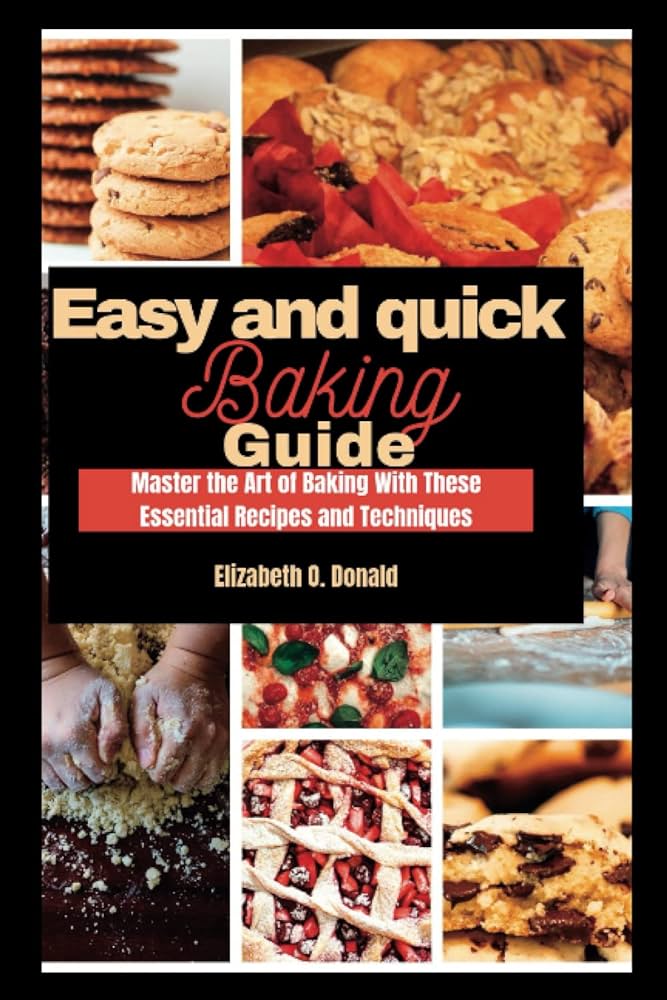This article provides essential tips and techniques for mastering the art of baking. It emphasizes the importance of setting up your kitchen with quality measuring tools, mixing bowls, utensils, and baking pans. For beginners, tips include reading and understanding the recipe, using room temperature ingredients, preheating the oven, and measuring ingredients accurately. It also highlights the benefits of sifting dry ingredients and using proper mixing techniques. The article suggests expanding baking skills by experimenting with flavors and ingredients, learning different baking methods, mastering pastry techniques, and specializing in a specific type of baking. Overall, it encourages readers to embrace baking as a form of artistic expression and enjoy the process of creating delicious treats.
Mastering the Art of Baking: Essential Tips and Techniques
Introduction
Baking has long been regarded as one of the most cherished culinary arts. Whether you are a beginner or an experienced baker, there is always something new to learn that can take your baking skills to the next level. In this article, we will explore essential tips and techniques that will help you master the art of baking and create delicious treats.
Setting Up Your Kitchen
Before diving into the world of baking, it’s crucial to set up your kitchen with the necessary tools and equipment. Here are a few essentials:
1. Quality Measuring Tools
Invest in accurate measuring cups and spoons to ensure your ingredients are precisely measured. Baking is a science, and slight variations in measurements can affect the outcome of your baked goods.
2. Mixing Bowls and Utensils
Choose a variety of mixing bowls in different sizes and materials. It’s also essential to have a sturdy spatula, a whisk, and a wooden spoon to assist you during the baking process.
3. Baking Pans and Sheets
Having a selection of baking pans and sheets is essential for various types of baked goods. Start with a basic round cake pan, a rectangular baking dish, and a baking sheet to cover most recipes.
Essential Tips and Techniques for Beginners
Now that you have your kitchen set up for success, let’s dive into some essential tips and techniques that will help you become a pro baker:
1. Read and Understand the Recipe
Before starting any baking project, carefully read the recipe from start to finish. Understand the ingredients, measurements, and steps involved. Familiarizing yourself with the recipe will assist you in avoiding mistakes and ensuring successful results.
2. Use Room Temperature Ingredients
Most baking recipes call for room temperature ingredients, especially butter and eggs. Allowing these ingredients to come to room temperature helps with proper mixing and ensures a more consistent texture in the final product.
3. Preheat Your Oven
Preheating the oven is crucial to achieving even baking. Make sure to preheat your oven at the specified temperature mentioned in the recipe before placing your batter or dough inside.
4. Measure Ingredients Accurately
Accurate measurements are the key to successful baking. Use dry measuring cups for dry ingredients like flour and sugar, and liquid measuring cups for liquids like milk and water. Level off the ingredients with a straight edge for precise measurements.
5. Sifting Dry Ingredients
Sifting dry ingredients, such as flour, baking powder, and cocoa powder, helps remove lumps and incorporates air, resulting in a lighter and fluffier final product. Invest in a fine-mesh sieve for this purpose.
6. Proper Mixing Techniques
Different recipes require different mixing techniques. For cakes, gently fold the dry ingredients into the wet ingredients until just combined to avoid overmixing. For cookies and bread, follow the recipe’s instructions regarding mixing times and techniques for the best results.
7. Be Patient and Don’t Rush
Baking is a labor of love that requires patience. Respect the baking times mentioned in the recipe and avoid opening the oven door frequently. Opening the oven can cause temperature fluctuations, affecting the final outcome of your baked goods.
Expanding Your Baking Skills
Once you have mastered the essential tips and techniques for beginners, you can begin exploring more advanced baking skills. Here are a few ways to expand your baking repertoire:
1. Experiment with Flavors and Ingredients
Don’t be afraid to get creative with flavors and ingredients. Customize recipes by adding spices, extracts, or even fruits. Experimentation is the key to unlocking unique and delicious creations.
2. Learn Different Baking Methods
Baking includes various methods like creaming, folding, and kneading. Each method produces different results, and learning these techniques will give you more versatility in your baking skills.
3. Mastering Pastry Techniques
Improve your pastry-making skills by learning techniques such as making flaky pie crusts, laminating dough for croissants, or creating perfect pâte à choux for cream puffs. With practice, you’ll be able to create professional-quality pastries.
4. Specialize in a Type of Baking
Consider specializing in a specific type of baking, whether it’s cakes, cookies, bread, or pastries. By focusing on one area, you can refine your skills and explore deeper into its techniques and flavors.
Conclusion
Baking is a delightful form of artistic expression that brings joy and deliciousness into our lives. By following these essential tips and techniques, both beginners and seasoned bakers can enhance their baking skills and create mouthwatering treats. So, put on your apron, gather your ingredients, and embark on the journey to mastering the art of baking.
